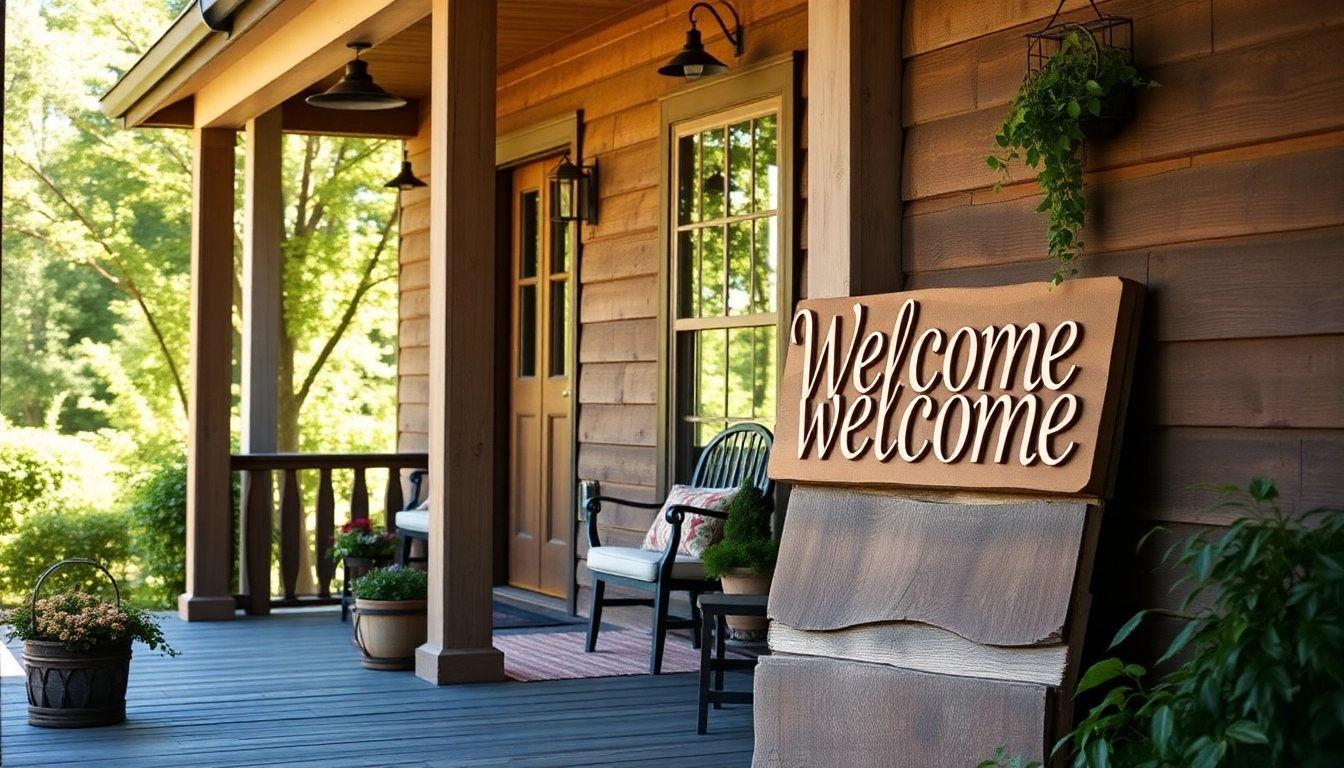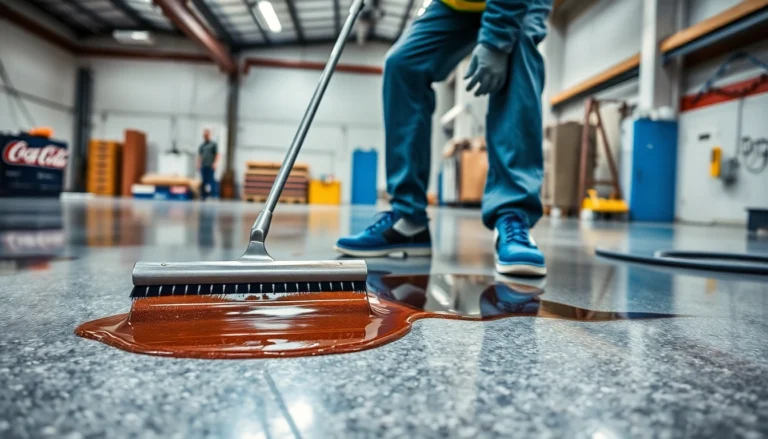First impressions matter, especially when it comes to your home’s entrance. Welcome signs have become a popular and effective way to add charm, personality, and warmth to any entryway. They serve not only as decorative elements but also as warm invitations to guests, conveying your unique style and creating a welcoming atmosphere. Whether you’re decorating a front porch, an indoor entryway, or preparing for a special event like a wedding, choosing the right welcome sign can significantly elevate your decor. To explore the full scope of creating inviting entrances, visit our collection of welcome signs and discover endless options suitable for every taste and occasion.
Understanding the Importance of Welcome Signs in Home Decor
The role of welcome signs in creating inviting entrances
Welcome signs play a vital role in establishing an inviting first impression. They act as visual cues that signal warmth, hospitality, and personal style. Strategically placed at the front door or porch, these signs communicate a friendly atmosphere to visitors, making them feel instantly at home. Beyond hospitality, welcome signs contribute to the aesthetic cohesion of your exterior decor, complementing other elements like planters, lighting, and seasonal decorations. Well-chosen signage can also reflect the personality of the homeowner, whether it’s rustic charm, modern chic, or personalized character.
Different styles and materials for welcome signs
The diversity of welcome signs in today’s market allows for extensive customization based on personal preferences and home themes. Popular materials include wood, metal, acrylic, and reclaimed materials. Wooden signs tend to evoke rustic charm and warmth, while metal options offer durability and a contemporary edge. Acrylic and plastic signs provide versatility in color and design, often suitable for outdoor exposure. Decorative styles range from minimalist modern lettering to ornate vintage fonts, and even customizable options with personalized messages or family names. Combining different materials and styles enables homeowners to craft a cohesive look that enhances their home’s aesthetic.
Aligning welcome signs with your home’s aesthetic
Achieving visual harmony is key to making your welcome sign truly stand out. For rustic or farmhouse style homes, weathered wood with handcrafted lettering resonates well. Modern homes benefit from sleek, minimalist designs with clean fonts and monochrome color schemes. Vintage-inspired or shabby-chic homes may opt for distressed finishes or decorative accents. For eclectic or personalized decor, consider custom signs with names, dates, or quotes that reflect your personality. Remember, a well-matched welcome sign should complement surrounding elements such as door color, window trim, and outdoor lighting. Ensuring cohesion between the sign and your overall exterior style creates a seamless and inviting entryway.
Choosing the Right Welcome Sign for Your Front Porch
Considerations: size, material, durability
Selecting an appropriate welcome sign involves multiple factors. The size should be proportionate to your porch or entryway—large enough to be easily seen but not overwhelming. Material choice depends on your climate; for outdoor durability, weather-resistant options like treated wood, metal, or acrylic are ideal. Durability also encompasses resistance to sun, rain, snow, and wind, depending on your location. Investing in high-quality materials ensures longevity, reducing the need for frequent replacements or maintenance.
Popular styles: rustic, modern, personalized
- Rustic: Weathered wood, distressed finishes, handcrafted craftsmanship for a cozy farmhouse style.
- Modern: Sleek lines, minimalist fonts, monochrome or metallic finishes suitable for contemporary homes.
- Personalized: Custom names, messages, or quotes to add a unique touch that reflects your family or occasion.
Choosing a style depends on your home’s architectural design and your personal taste. For example, a rustic wooden sign complements a country cottage, while a brushed metal sign pairs well with a modern home. Personalized signs are popular for weddings, anniversaries, or family celebrations, allowing you to make a statement that’s uniquely yours.
Matching welcome signs to seasonal and outdoor themes
Seasonal and outdoor-themed welcome signs add a dynamic layer of charm to your home decor. Spring and summer may inspire colorful, floral, or nautical designs, while fall favors warm tones and harvest motifs. Winter themes often incorporate snowflakes, reindeer, or holiday greetings. Removable or interchangeable signs make seasonal updates easy, allowing you to keep your entryway fresh and festive year-round. Consider materials like weatherproof wood or metal for outdoor longevity, and opt for designs that harmonize with your seasonal decor.
Design Tips for Creating Personalized Welcome Signs
Incorporating your family name or message
Personalized welcome signs are a fantastic way to showcase your family identity. Incorporate your last name, family motto, or custom message to make your signage distinct. Use high-quality vinyl decals, hand-painted details, or engraved lettering for a professional finish. When designing, consider font styles that match your overall aesthetic—script fonts lend a classic elegance, while bold block letters provide clarity and impact. Personalization not only enhances curb appeal but also makes your guests feel truly welcomed.
Using color schemes to complement your home
Color plays a critical role in signage design. Choose colors that complement or contrast with your home’s exterior palette. For example, a rich navy or deep green sign pairs beautifully with white or neutral siding, while bright colors like yellow or red can inject energy into a muted facade. For a cohesive look, consider the color wheel—complementary colors add vibrancy, while analogous colors create harmony. Weather-resistant paint or high-quality printed graphics ensure color longevity and vibrancy over time.
Adding decorative props and accents for impact
Enhance your welcome sign with decorative props such as planters, lanterns, or seasonal accessories like wreaths and bows. These accents frame the sign and draw attention to your entryway. Quality props can be changed seasonally to keep your decor fresh and engaging. For instance, pairing a rustic wooden sign with a floral arrangement in spring or a pine cone and fairy lights during winter creates a layered, inviting look. These small touches significantly boost the aesthetic appeal and create a welcoming atmosphere.
Installation and Maintenance of Welcome Signs
Best placement practices for visibility and appeal
Proper placement amplifies the impact of your welcome sign. Mount it at eye level for maximum visibility, ideally near the front door or entry pathway. Use sturdy hardware suitable for your material—screws or hooks for wood and metal, adhesive options for lighter signs. Ensure the sign is clear of obstructions such as plants or decorations. Consider lighting fixtures like sconces or spotlights to enhance visibility during evening hours and add a touch of sophistication.
Weatherproofing outdoor welcome signs
Protection from the elements is crucial for outdoor signs’ longevity. For wooden signs, applying a weatherproof sealant or outdoor-grade paint prevents water damage, cracking, and fading. Metal signs are typically coated with protective finishes that resist rust and corrosion. Acrylic and plastic signs are inherently weather-resistant but should be cleaned regularly to maintain appearance. Regularly inspecting and touch-up maintenance ensure your welcome sign remains pristine and inviting year-round.
Cleaning and caring for different materials
Cleaning routines vary based on material. Wooden signs can be gently wiped with a damp cloth; avoid harsh chemicals that may strip paint or finish. Metal signs require mild soap and water; avoid abrasive scrubbers that can scratch surfaces. Acrylic signs can be cleaned with a soft cloth and glass cleaner to prevent streaks and maintain clarity. Proper maintenance preserves the appearance, color vibrancy, and structural integrity of your welcome signage, extending its lifespan.
Maximizing Impact: Creative Ways to Use Welcome Signs
Indoor vs. outdoor placement strategies
While outdoor signs serve as invitations for visitors, indoor welcome signs set a warm tone within your home. Indoor signs can be hung near the foyer, inside front doors, or above entry tables. They often feature playful or heartfelt messages that resonate with your family’s personality. Outdoor signs require weatherproofing and weather-resistant materials, while indoor options allow for more delicate designs and materials like painted wood or framed prints.
Combining signs with other decor elements
Create a cohesive entryway by pairing your welcome sign with complementary decor. Think about matching color palettes, themes, or motifs across elements like doormats, planters, furniture, and lighting. Arranging seasonal florals or greenery around the sign adds vibrancy and visual interest. Layering decor helps craft a welcoming vignette that invites guests to feel at home from the moment they arrive.
Seasonal updates and personalized touches to keep your entry inviting
Changing or updating your welcome sign seasonally can refresh your entryway. For example, swapping out holiday-themed signs or adding seasonal props keeps your decor lively and engaging. Personalized touches such as engraved plaques, painted designs, or custom messages maintain a genuine connection with visitors. This flexibility not only enhances aesthetic appeal but also communicates that you care about your home’s presentation throughout the year.


















